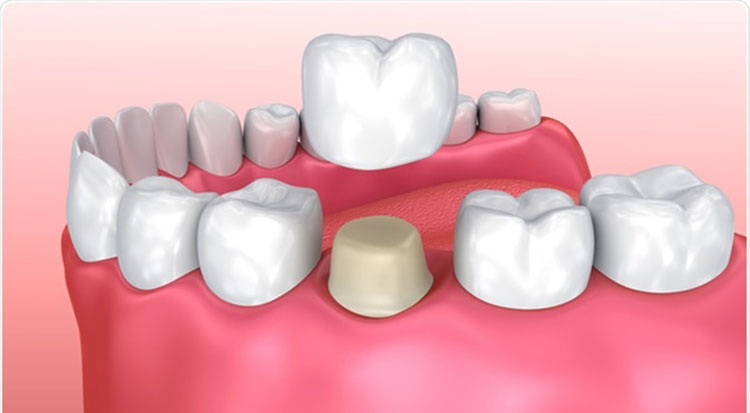Dental Crown Treatment
When teeth are broken, decayed, abnormal shape or root treated, it’s possible that a crown commonly known as cap would be the treatment of choice.
Crowns are generally made from materials such as porcelain, and porcelain/metal combinations. Not only do they make your teeth look more attractive, but they also give them added strength, durability and stability.
Dental Crowns are designed to encase a tooth and restore it to its former function, strength and appearance.

A tooth may become weak due to trauma, decay or from extensive dental work such as root canal therapy. A crown will provide a protective cover for your tooth to restore it back to its original form and function. They may be made of high quality porcelain, at MVDC we use local dental laboratories, and no works gets done on overseas dental laboratories, as we pride of using the highest Australian standards.
What’s Involved in Having a Crown
The fitting of dental crowns requires 2 visits.
Initial Visit
- Precision preparation of the tooth is carried out to ensure your new crown fits and integrates perfectly with your surrounding and opposing natural teeth and bite.
- Impressions of the tooth are taken, and a
- A temporary crown is placed over the prepared tooth. At the next visit, the temporary crown is removed and the permanent crown is fitted, adjusted and finally cemented into place.
Second visit
- Temporary crown removed
- Crown is fitted and cemented
When are Crowns Needed?
Crowns are recommended when damage to a person’s teeth is extreme and there is no longer sufficient tooth structure left to place a filling. Crowns are used to…
- Strengthen teeth, including root canal treated teeth
- Restore heavily filled/worn teeth
- Improve the appearance of teeth
- Protect fractured teeth
- Accommodate the attachment of a fixed bridge
How Long Will Crowns Last?
Crowns are used for long lasting correction of major dental problems. It is not unusual to see crowns that have been in place for 20 to 30 years, which is as close to permanent as dental treatment can get.
The best way to make the most out of your crown is to care for it as you would any other teeth you wish to preserve.
Proper oral hygiene, including flossing at least once a day and brushing twice daily is just as important as ever to help keep your teeth and gums healthy, along with regular hygiene appointments.
Dental Crowns are a common cosmetic treatment, in some cases, a crown might not be the answer, it could be as simple as a veneer or a more complex situation where a root canal might be needed.
Dental Crown FAQ’s
Satisfied Patients
& growing every year






